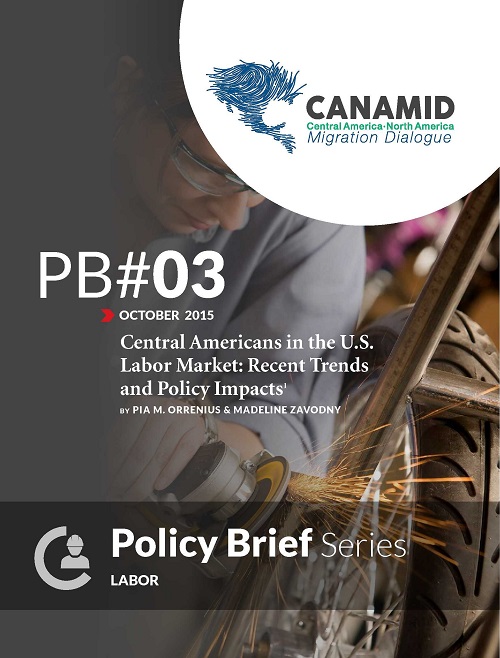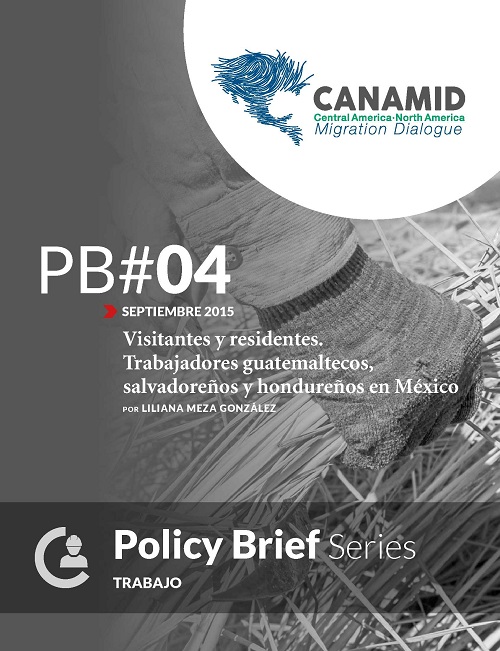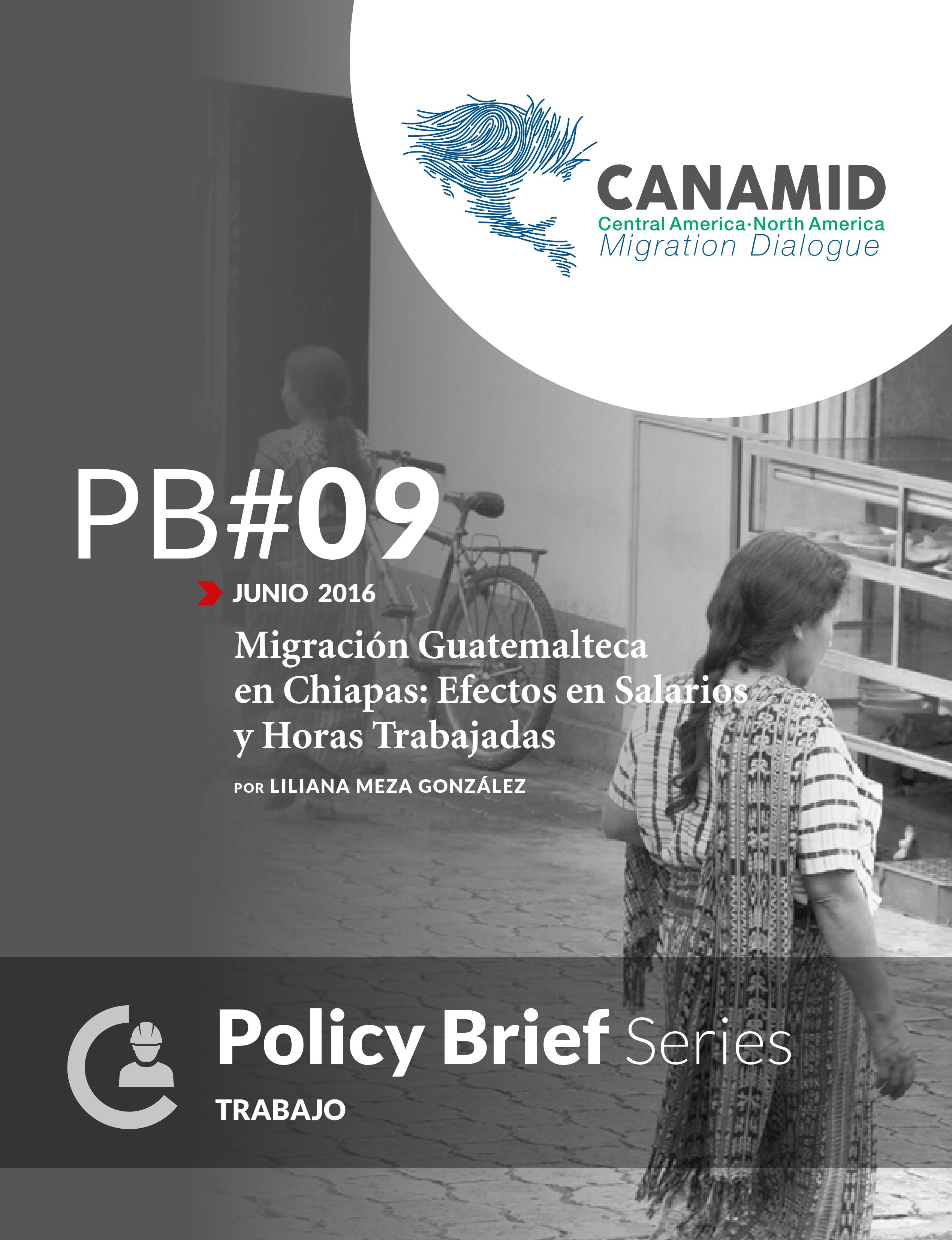 PB#03: Central Americans in the U.S. Labor Market: Recent Trends and Policy Impacts
Pia Orrenius and Madeline Zavodny
PB#03: Central Americans in the U.S. Labor Market: Recent Trends and Policy Impacts
Pia Orrenius and Madeline Zavodny
Immigration from Central America to the United States is rising rapidly. Much of this inflow is unauthorized. Violence and corruption in Central America is affecting both the volume and composition of current migrants who are less educated, less likely to speak English, and who face tougher border and interior enforcement than Central Americans who immigrated in the 1980s and 1990s faced. We offer a number of policy recommendations aimed at expanding legal avenues to accommodate immigrant flows from Central America while regularizing those already in the U.S.
 PB#04: Visitors and Residents: Guatemalan, Salvadoran and Honduran Workers in Mexico
Liliana Meza
PB#04: Visitors and Residents: Guatemalan, Salvadoran and Honduran Workers in Mexico
Liliana Meza
The labor status of Central American migrants is characterized by precarious work. This applies to both Guatemalans with temporary work permits who return to their country after a stay in Mexico as well as Guatemalans, Salvadorans and Hondurans living permanently in Mexico. This report is based on Mexico’s Southern Border Migration Survey (Emif Sur) 2004-2013 (Encuesta sobre Migración en la Frontera Sur de México) and the housing and population censuses from 2000 and 2010.
 PB#09
Liliana Meza
PB#09
Liliana Meza
There is no evidence that Guatemalan immigration to Chiapas has adversely affected the working conditions of native laborers in Mexico’s southernmost state. In fact, in the case of Guatemalan women, their migration seems to have increased the earnings of local women.